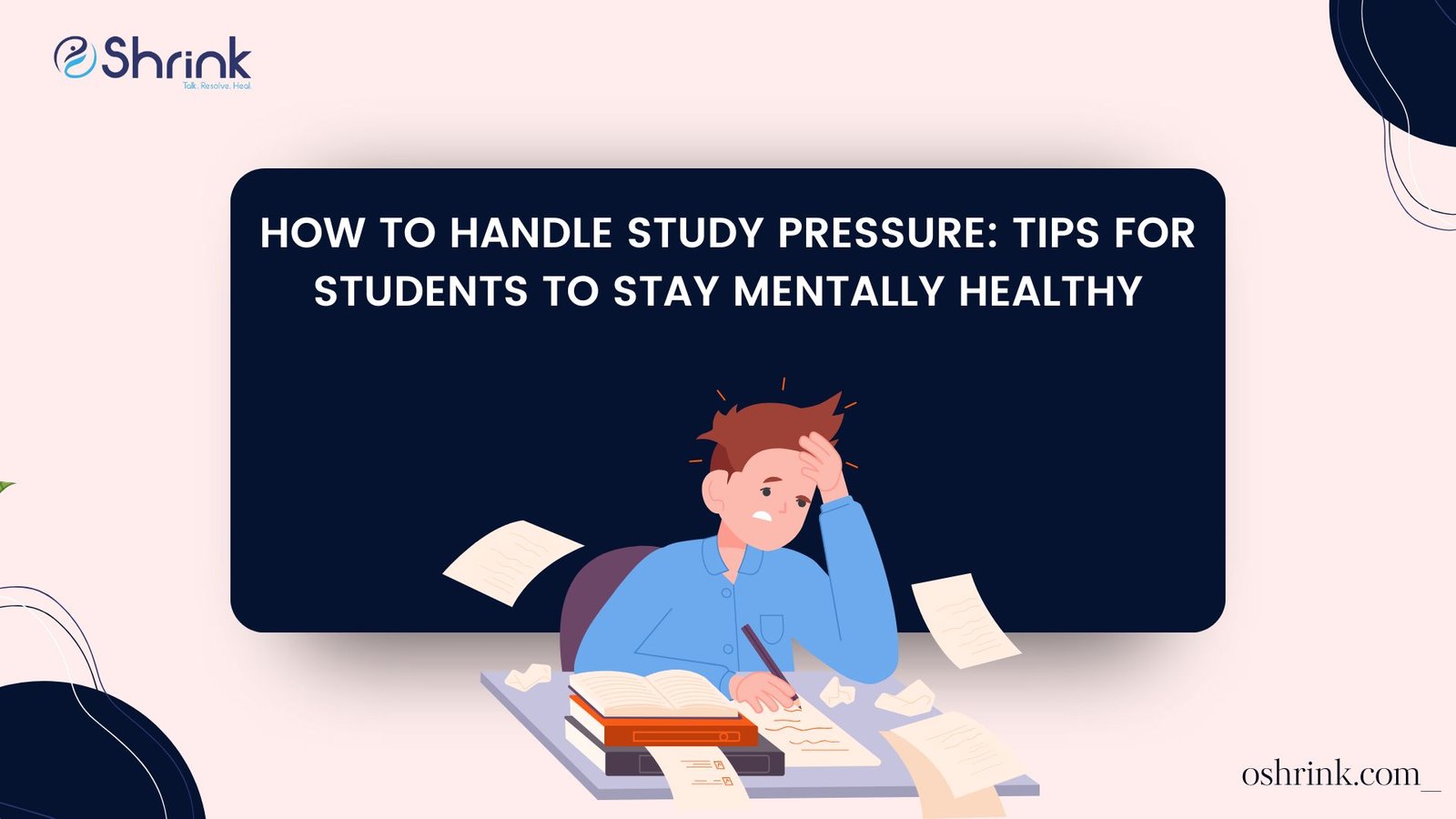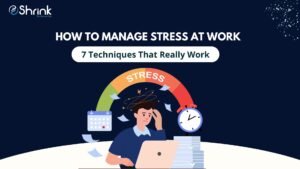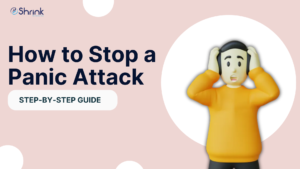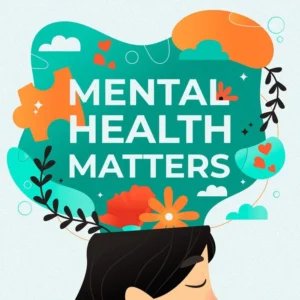Pressure to study is a relatively common phenomenon for all age groups of students in the hectic academic environment today. Rising academic expectations and assignments, exams, extracurricular activities, and commitments inevitably make many students feel overwhelmed. The pressure to succeed academically might lead to serious implications with respect to the student’s mental health, such as stress, anxiety, and even burnout. We shall see in this blog how one can cope with the pressure of studying and practically what one can do in order to be mentally healthy.
Understanding Study Pressure
Study pressure is a feeling that feels very urgent to perform well in academics. It’s usually caused by both intrinsic and extrinsic reasons. Some common causes of study pressure include:
- Exams and Deadlines: The fear of poor grades in the exams or not meeting the deadlines of some assignments.
- Parental and peer expectations: Many students fear high parental or peer expectations.
- Competitive Academic Environment: Increased competition is being reflected more and more through academic circles.
- Balancing Multiple Commitments: One out of several may also face pressure due to the balancing of multiple commitments, such as academics with extracurricular activities, part-time jobs or family responsibilities.
Study pressure can be very painful on both the psychological and even physical level. For the learner, there is panic attacks, mood shifts, and the worst is the presence of bodily symptoms like headaches or stomach aches. If these are not well managed using suitable coping mechanisms, they can then develop into burnout, where students feel emotionally and physically drained.
Signs That Study Pressure is Affecting Your Mental Health
You have to record when you feel that there is too much pressure in study and how it is affecting your mental health. Some common signs that may indicate that you are stressed include the following:
- Emotional Signs: Irritability, mood swings, feeling over or hopeless, anxiety.
- Physical Signs: fatigue, headaches, stomach issues, frequent colds.
- Behavioral Signs: Avoiding tasks, procrastination, isolating from friends and family, poor academic performance.
Knowing these symptoms early is a key for managing them before they escalate.
Practical Tips for Handling Study Pressure
Having identified the problem, here are the practical solutions for dealing with study pressure to remain mentally healthy.
1. Time Management Skills
One of the main causes of why most students feel overwhelmed is bad time management. How to prioritize tasks can alleviate much of the pressure associated with last-minute studying or assignment submission. Here are some time management tips:
- Structure your study time by breaking large amounts of work into manageable, smaller ones.
- Use such tools as planners or apps/digital calendars to keep track.
- Avoid multi-tasking because it is said to decrease productivity
2. Setting Realistic Goals
You might sometimes set for yourself very high goals, but you need to be aware that unrealistic targets may disappoint you and put unnecessary pressure on you. Your targets should therefore be what is achievable by you.
- Large projects can be broken up into smaller ones.
- Mark small victories: You completed a chapter or an assignment.
3. Taking Breaks
It is not easy to get mentally drained without breaks in long periods of studying. Breaks revive your mind and heighten your focus. Try the Pomodoro Technique
- which consists of 25 minutes of concentrated work followed by a 5-minute break.
- During your break, go for a walk, stretch, or do a small activity to calm yourself down.
4. Physical Exercise and Its Mental Health Benefits
Physical exercise is not only helpful for your body but also for your mind. Physical activity releases endorphins, natural mood elevators. A simple walk can clear your head and increase your level of comfort by removing tension.
- Do something simple like walking, yoga, or stretching that may cut down on your tension.
- Join a sports club or gym to make physical exercise habitual.
5. Balanced Diet
Healthy dieting is essential for good mental health. Thus, foods that contain vitamins, minerals, and antioxidants enhance your mood and concentration.
- Eat fruits, vegetables, whole grains, and lean proteins
- Drinking hydrates and keeps you refreshed throughout the day.
6. Adequate Sleep
Sleep deprivation has significant influences on cognitive functions and emotional control. At least 7-8 hours of quality sleep are essential for good memory and stress management.
- Avoid screen time at bedtime to enhance the quality of your sleep.
- Develop a soothing bedtime routine that can help you relax.
Mindfulness and Meditation Practices
Mindfulness and meditation are amazing tools for students to regulate their stress and remain focused. Both attempt to foster the cultivation of present moment awareness, Hence, which tends to decrease feelings of overwhelm. Here are some easy mindfulness practices:
- Deep breathing is an excellent mind-calming exercise.
- Guided meditation apps or videos can calm your nerves before exams.
- When doing one thing at a time, focus can be enhanced, and anxiety can be reduced.
Reaching Out for Support
It is important that students develop a sense of needing aid. Talking out your problems to friends, family, or teachers might sometimes make you feel better. If things are really getting to you, it is okay to seek therapy. There are also mental health services through Oshrink that can be accessed by students who provide accessible counseling services.
- Talk over your problems with people you trust.
- You might also want to find an online group or community of students like yours.
Conclusion
This will be a study pressure, which is not avoidable at this stage of life, but the effective use of appropriate strategies can really help to be at ease with it and keep good mental health. These strategies include the practice of time management, being mindful, and seeking help when needed in order to have a right balance between their studies and their well-being.
Lastly, taking care of your mental well-being is equal to making the right grades. Oshrink and other such platforms are here for you to achieve your academic and mental potential.
FAQs
Q-1. What are some quick ways to reduce stress before an exam?
Ans- Keep your mind focused at the time of an examination. You may take deep breathing exercises or do some short meditation to relieve your tension. Do not cram. Review key points or summaries. Taking a short walk reduces the level of stress in your body as well as recharges your mind before sitting in for the test.
Q-2. How can I balance extracurricular activities with academic work without feeling overwhelmed?
Ans- Managing extracurriculars along with academics requires proper time management. Set your priority lists and manage the schedule either by a planner or scheduling apps. Don’t become overcommitted by taking too much work in one go. Quality over quantity should win, and you shouldn’t forget breaks to recharge your energy too.
Q- 3. What should I do if I feel overwhelmed by study pressure?
Ans- Sometimes one may feel overpowered and must seek help. You can confide in your favorite teacher, guidance counselor, or even family member about the issue you are facing. Platforms like Oshrink can give access to professional counseling services where one can develop strategies for building up resistance and learn to deal with stress better.
Q- 4. How does physical exercise help reduce study pressure?
Ans- Physical exercise releases endorphins that are natural mood enhancers. It improves blood flow to the brain, thus improving focus and cognitive function. A short workout or walk goes a long way in reducing anxiety; you’ll feel better, your mood will be improved, and you’ll get a break from studying mentally.
Q-5. Can meditation help improve my concentration while studying?
Ans- Meditation can surely be very effective in enhancing concentration and attention. Since mindfulness meditation allows for cultivation of awareness in the present moment, distractor thoughts are eliminated and the mind is quietened. At times it decreases anxiety and improves one’s ability to concentrate for more time spent in reading, writing, and other study activities.






